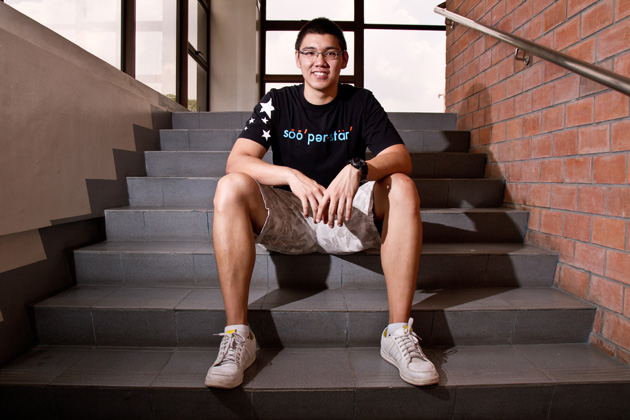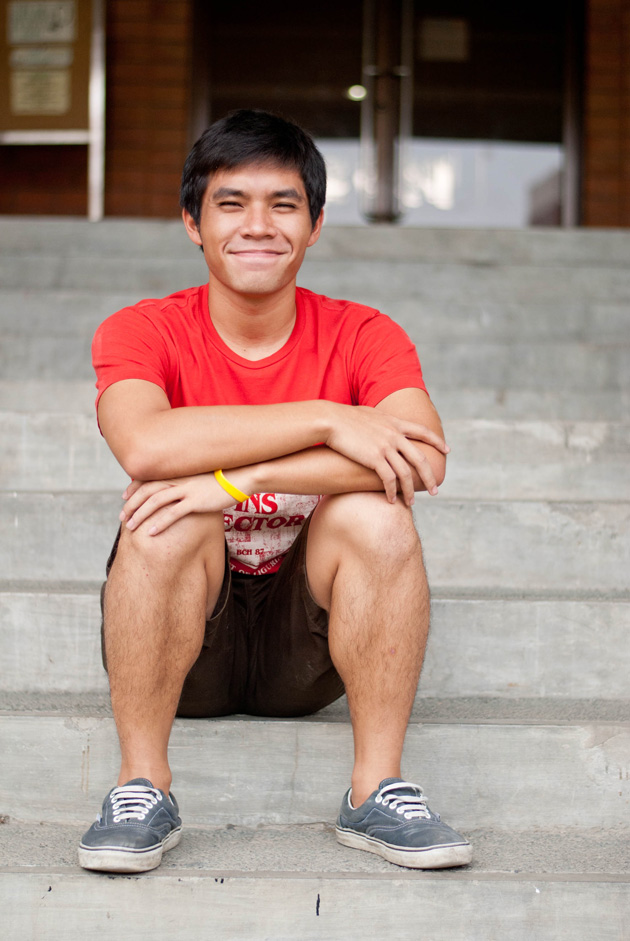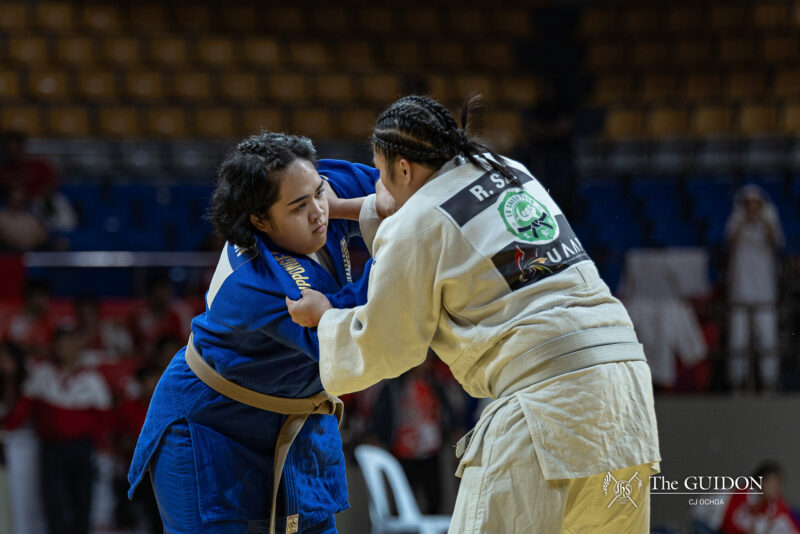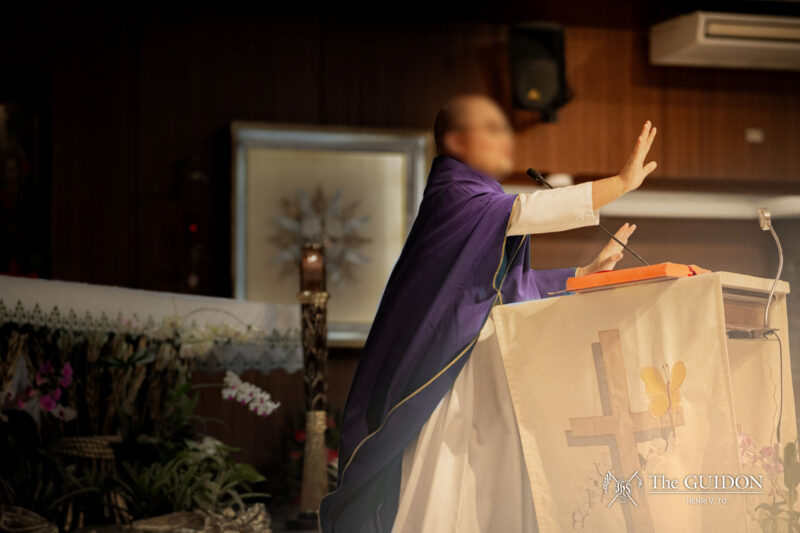There are those born to play the game and seem to find quitting just too difficult. Michael Jordan retired from sinking game-winners when he was 34 years old and Andre Agassi made his last serve in the 2006 US Open at age 36. Age did not stop these superstars from playing the game they love.
In the Ateneo, there are student-athletes who choose to overstay and become super seniors. From missed opportunities to taking on greater feats, these Ateneans have a myriad of reasons for pursuing a fifth year.
Unfinished business
Returning Blue Batter Gab Bagamasbad shares that his decision to take a fifth year was a result of the baseball team’s run to its first finals appearance last year. “One more shot,” he says.
The thought of extending for five years in college first crossed Gab’s mind in his sophomore year. Since the Blue Batters have not yet won a championship title, he believed that a fifth year would increase his chances of being part of the team that would be the first.
Last year, the Blue Batters placed second after they lost in a dramatic championship series against NU. “We came so close last year!” Bagamasbad exclaims.
Lady Spiker Jem Ferrer shares Gab’s sentiments, as she sets out on her last year in collegiate volleyball.
“Sayang (It’s a shame),” she says on their loss to La Salle in their first trip to the finals. Ferrer, a setter for the Lady Spikers, shares that her love for the sport compelled her to return for a final year.
Ferrer, alongside batchmates Gretchen Ho, Angeline Gervacio, Fille Cainglet and Aillysse Nacachi are all returning for one last run in the UAAP this season.
For Blue Eagles Justin Chua and Nico Salva, the decision had been made early on; their units were spread out so that they get to stay in the Ateneo for five years.
Careers and early retirement
Aside from the prospect of graduating as UAAP champions, Gab and teammate Bocc Bernardo believe that their fifth years will serve as their “early retirement” from baseball.
“There really isn’t an opportunity to play [professional] baseball here,” says Bernardo.
A fifth year will serve as their opportunity to play their beloved sport one last time, putting the real world of taxes and corporations temporarily on hold.
This not the case for Blue Eagles Chua and Salva as the former explains that his extra year in college does not mean putting the “real world” on hold for him.
“Hopefully, ‘yung ‘real world’ ko, basketball pa rin (Hopefully, my ‘real world’ will still be in basketball),” Chua says.
Salva and Chua both say that their dream is to pursue a career in the Philippine Basketball Association (PBA). The two believe that another year of collegiate ball will add points to their future drafts into prestigious PBA teams.
Chua adds, though, that this plan is not set in stone. “If it doesn’t work out, I have a degree from Ateneo.” His statement shows his understanding of what the Ateneo wants to give its student-athletes: a sound mind and a sound body.
Five-peat
“Staying for [a] fifth year also means going for a historic five-peat,” says Salva, who shares this goal with Chua and Tonino Gonzaga. If the Blue Eagles do deliver one more championship for Ateneo this season, it would be the first time that a team would win five consecutive championships in the Final Four era of the UAAP.
Junior Greg Slaughter may not be on his fifth year, but this year shall be his last playing year for the Blue and White. Slaughter shares that he feels lucky to be able to return for one more year and hopefully bag another championship for the Ateneo.
Five-year phenomenon
UAAP rules state that an athlete is allowed five playing years within seven years after he or she had graduated from high school. These years need not be consecutive, as long as all five are within the seven-year allowance. An age limit, set at 25 years old, is also in place to determine eligibility to play and participate in UAAP sports.
“It’s nothing new; it happens,” says Benjo Afuang, coordinator for the College Athletics Office (CAO), on the trend of super seniority in the UAAP. Although the trend is more widespread in basketball, the commercialization of the UAAP has contributed to the spread of this trend to different sports. “The sports programs grew [and] UAAP became more popular. It became difficult for athletes to leave,” adds Afuang.
Although most athletes set out to play for five years upon recruitment, some finish their undergraduate degree in four years then pursue a master’s degree on their fifth year. When an athlete does this and asks for another year of athletic scholarship, the University Athletics Office (UAO) ensures that the athlete knows the gravity of completing a fifth year.
While an athlete may have his or her own reasons for adding an extra year of college, Afuang points out that the decision also relies heavily on the coach. Keeping in mind the best interests of the team and its future, the power to decide still comes from the coach.
Magis
Contrary to popular belief, super senior status does not guarantee the athlete the position of team captain, which is again a decision made by the coaching staff. Athletes on their fifth year, however, are expected to contribute to the growth of the team.
“We expect them to be part of the team,” says Afuang. While an athlete may be considered as a veteran and a master at what he does, he is still expected to play by the rules just like everybody else.
“My coaches and teammates expect me to lead the team on and off the court. I have to set an example,” says Salva.
Bagamasbad adds, “[We] seniors are outnumbered by the younger ones. So we really have to step it up and set an example.”
Whatever reason it may be for staying another year in college, it really boils down to one’s love for the sport. In the end, these super seniors are aware that playing another year for the Ateneo comes with a myriad of responsibilities and commitments—commitment to the sport, to the team, to their academics, and most importantly, to their beloved alma mater.
What do you think about this story? Send your comments and suggestions here: tgdn.co/2ZqqodZ









